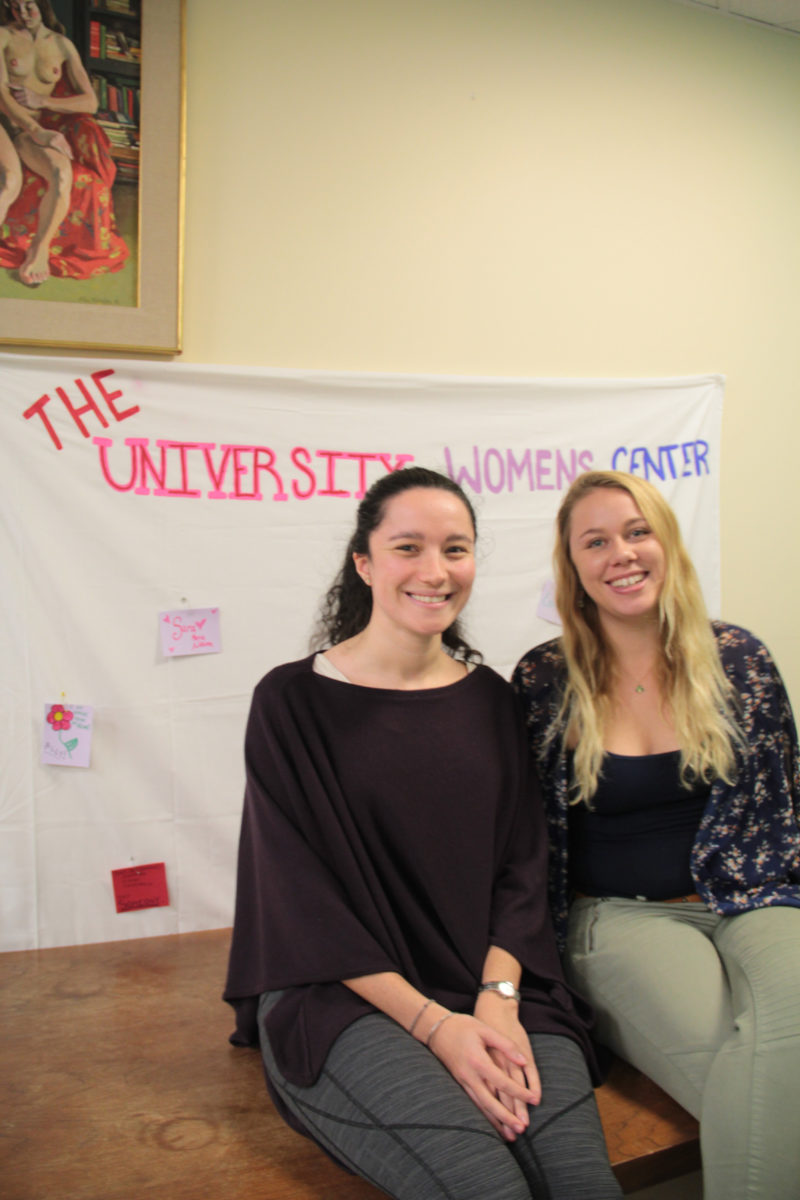Two St. Thomas University social work students have released a study suggesting a higher level of resources for the LGBTQ community can be found at STU compared to the University of New Brunswick.
Sarah Enright and Maggie Fischer both said the size of STU allows it to cater to students’ needs better.
“Maybe on the surface [I was] surprised because UNB is a bigger school [so] you would expect more resources, but when you kind of start looking at the schools, I mean, STU is smaller and it’s more focused on liberal arts,” Fischer said.
“So, I guess it isn’t surprising that they’re a little more progressive in that manner, and when you’re smaller you can kind of do better things one-on-one with your students.”
According to Erin Fredericks, the LGBTQIA+ resource advisor at STU, approximately 15 to 17 per cent of students that attend the university identify as queer. An estimated five per cent of the student population identify as transgender.
Enright said one of the most striking results to come out of the comparative study was that Fredericks’ position at STU. She is a paid faculty LGBTQ advisor, a position UNB doesn’t have.
“I think that is very important that they have that,” she said. “I think that’s where a lot of the problems come from. They go under the radar and someone identifies them but there’s not a point person to take care of it.”
Enright said help from the university itself is essential.
“I think it takes administration and faculty to be on board and to be moving some of that stuff forward and same with the student union. And I see a lot of those people at STU and administration hasn’t given that spot to UNB.”
While UNB has LGBTQ advocacy and support groups like Spectrum and Qmunity, Fischer said getting an advisor who is paid to work with them would be a huge step for the school.
Enright said she doesn’t believe improvements at UNB are impossible because there’s not necessarily a big difference between the students at STU and UNB.
“They have the same motivation and drive, so they just need the support of everyone else.”
Hayden Richardson, a UNB student and executive member of Qmunity, said the results of the study were not surprising.
“To students who are reading it, it’s something they’re experiencing first-hand so they’re very used to the differences between STU campuses and UNB campuses,” he said.
Richardson said while the difference in campus culture is evident, the amount of differences in quality of resources was still shocking.
“I think to a lot of students that’s frustrating because [while] they understand that it’s a smaller campus, they also understand that it’s an equal need.”
Richardson said the biggest foundational piece missing at UNB is having a faculty advisor for the LGBTQ community like St. Thomas does.
“Students have no professional resource to go to,” Richardson said.
“They can go to counselling services, they can go to a bunch of different services but there’s no guarantee that the person they’ll be speaking to will understand that specific approach they’re coming from, that specific perspective.”
Richardson said despite the lack of representation among the faculty, UNB has shown tons of support since Qmunity formed in August.
Qmunity was formed, as Richardson said, “out of this understanding we were missing certain programs and attitudes on campus.”
Richardson said Qmunity’s main purpose is to provide the kind of programming UNB is missing, including workshops to educate students and faculty and social events.
“We just try to provide a space for people to express themselves safely or as safe as possible and to educate the student body at large.”
Richardson said the group was shocked how much support they were given from the start. UNB, for example, provided Qmunity with balloons, T-shirts and faculty members to walk with the group in the Fredericton Pride Festival parade.
Richardson said the support for the community is obviously there and people are excited about the work the group is doing, but the support needs to be taken further.
“I think the most important thing we need right now is we really need that faculty rep and we really need a resource centre, badly,” he said.
“A student support group isn’t enough to get anything substantial done, so if we’re looking to change policy… there needs to be a resource centre, there needs to be a rep and those are the two things we’re pushing for the most.”

